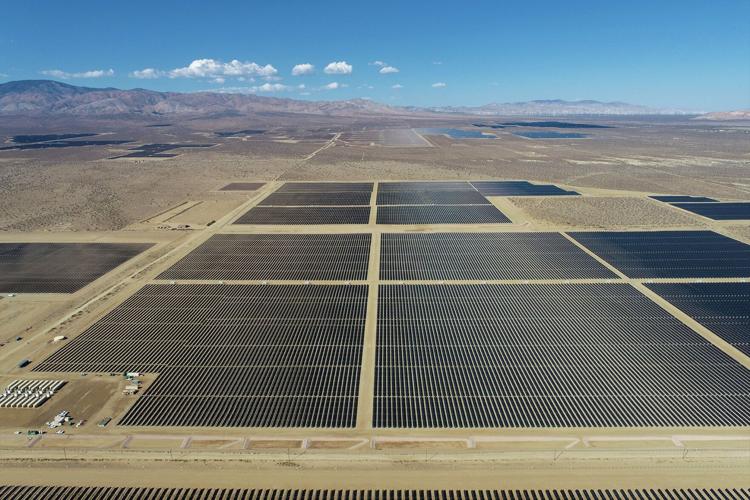
Photo courtesy Leeward Renewable Energy
A battery project coming to eastern Kern will be just the third in the county's large and diverse energy portfolio to provide lithium electricity storage on a standalone basis, apart from photovoltaic solar panels.
Dallas-based Leeward Renewable Energy's 126,000-megawatt Antelope Valley BESS, for battery energy storage system, will be sited between two PV solar projects it already owns and operates. It is expected to deliver more than 500 megawatt-hours of power during peak demand, enough for 100,000 homes for four hours after the sun goes down.
Leeward recently announced it has signed a 15-year agreement to provide power from the project to Southern California Edison. Construction is expected to be complete in early 2024.
Leeward said it is the company's first standalone battery energy storage project, designed to support resiliency and reliability of the state power grid while meeting the most stringent safety requirements.
"We are proud to partner with Southern California Edison to help meet California’s zero-carbon goals and facilitate the transition to a cleaner and more reliable power grid that will directly address the urgent need for energy capacity in the state," Leeward's chief commercial officer, Eran Mahrer, said in a news release last month. "LRE looks forward to our continued long-term partnership with SCE, the county and the community as we develop and operate Antelope Valley BESS.”
The project is to be built adjacent to Leeward's 100-megawatt Rabbitbrush solar-plus-storage project, and next to its 174-megawatt Chapparal Springs project providing electrical generation and storage.
Leeward said the projects demonstrate its commitment to be a long-term partner with the community on employment and other economic benefits, as well as protections and enhancements for the community and the environment.
The county's top energy permitting official, Director Lorelei Oviatt of the Planning and Natural Resources Department, said the project is part of "the new frontier, which is lithium batteries."
She noted the state puts limitations on standalone battery energy storage projects, usually insisting they be paired with a solar generation facility.
Oviatt noted the project will pay its full property taxes, unlike PV solar projects, which enjoy a large exemption from such taxes in California. It will pay almost as much in property taxes as an Amazon fulfillment center, she noted.
The county Board of Supervisors encourages such investments, Oviatt added, saying, "We certainly would like to have more of them."